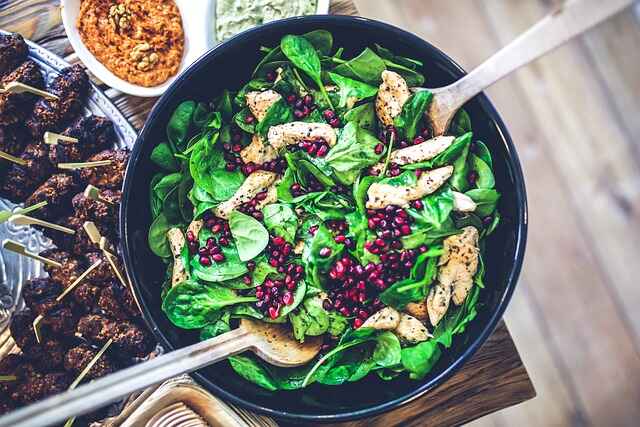What Is Vitamin B2 Aka Riboflavin?
Riboflavin, often known as vitamin B2, is a food nutrient that is an essential part of coenzymes that support cell development, energy production, and the metabolism of lipids, hormones, and drugs. The majority of riboflavin is promptly metabolized and not retained by the body; hence, excess levels are expelled in urine. Urine can turn bright yellow if there is an excess of dietary riboflavin, typically from supplements.
What Are The Functions Of Vitamin B2 Aka Riboflavin?
Energy Production: Riboflavin is a crucial component of the coenzymes flavin mononucleotide (FMN) and flavin adenine dinucleotide (FAD), which are involved in various metabolic reactions. These coenzymes play a role in the conversion of carbohydrates, fats, and proteins into adenosine triphosphate (ATP), the body’s primary source of energy.
Cell Growth and Repair: Riboflavin is necessary for the growth, development, and repair of body tissues. It supports the production of new cells, particularly in the skin, eyes, and mucous membranes.
Antioxidant Activity: Vitamin B2 acts as an antioxidant, helping to neutralize harmful free radicals in the body. This can protect cells from oxidative stress and reduce the risk of chronic diseases.
Eye Health: Riboflavin is essential for maintaining healthy eyes. It is particularly important for the cornea, the transparent outer layer of the eye. Riboflavin deficiency can lead to eye conditions like cataracts.
Skin Health: Riboflavin contributes to healthy skin by supporting the repair and maintenance of skin tissues. It is often used in skincare products for its potential benefits.
Nervous System Function: It plays a role in maintaining the health of the nervous system and helps in the synthesis of neurotransmitters.
Digestive Health: Riboflavin is involved in the metabolism of certain drugs and helps maintain a healthy digestive system.
Thyroid Function: Vitamin B2 is important for the proper function of the thyroid gland, which controls metabolism and energy production.
Iron Metabolism: It is essential for the metabolism of iron and helps prevent anemia.
Growth and Development: It is crucial for the growth and development of the body, making it especially important for children, adolescents, and pregnant women.

Also Read: Tomato Health Benefits: Nutrition Facts, Value and Advantages
How Much Vitamin B2 Aka Riboflavin Do I Need? What Are The Recommended Amounts?
RDA: For men and women aged 19 years and older, the Recommended Dietary Allowance (RDA) is 1.3 mg and 1.1 mg daily, respectively. The dosage rises to 1.4 mg and 1.6 mg per day during pregnancy and lactation, respectively.
UL: A tolerable upper intake level is the daily dosage that will most likely shield the general populace from negative side effects (UL). There isn’t a UL for riboflavin because it hasn’t been proven to be present in food sources or over extended periods of time when people take high-dose supplements.
What Happens If There Is an Excess Of Vitamin B2 Aka Riboflavin?
The effects of taking daily supplements containing high doses of riboflavin are unknown because there is insufficient evidence to support them.
What Are The Food Sources Of Vitamin B2 Aka Riboflavin? What Food Contains Vitamin B2 Aka Riboflavin?

Good sources of riboflavin include:
These foods should ideally be kept out of direct sunlight because UV light can degrade riboflavin.
Deficiency: The Possible Disorders And Their Symptoms
In the US, there are very few cases of riboflavin insufficiency. A deficit may be more likely in individuals with thyroid disorders. When a person is malnourished, for example, a riboflavin shortage is most frequently accompanied by other vitamin deficiencies. Among the symptoms are:
- Cracked lips
- Sore throat
- Swelling of the mouth and throat
- Swollen tongue (glossitis)
- Hair loss
- Skin rash
- Anemia
- Itchy red eyes
- Cataracts in severe cases
Higher Risk Of Deficiency:
- Those who eat less or no meat or dairy due to their vegetarian diet.
- Pregnant women, especially those who eat little meat or dairy (lactose intolerance), due to the increased dietary requirements of a developing foetus.
Toxicity Of Vitamin B2 Aka Riboflavin In Case Of Excess Of Vitamin B2
Vitamin B2 is generally considered to have low toxicity, and there are no known adverse effects associated with consuming excessive amounts of riboflavin from food sources. To avoid any potential risks associated with excessive riboflavin intake, it’s advisable to obtain your daily vitamin B2 requirements through a balanced diet, and supplementation should only be done under the guidance of a healthcare professional when medically necessary.
Also Read: Health Benefits Of Cheese: Nutrition, Healthy Facts & Warnings





